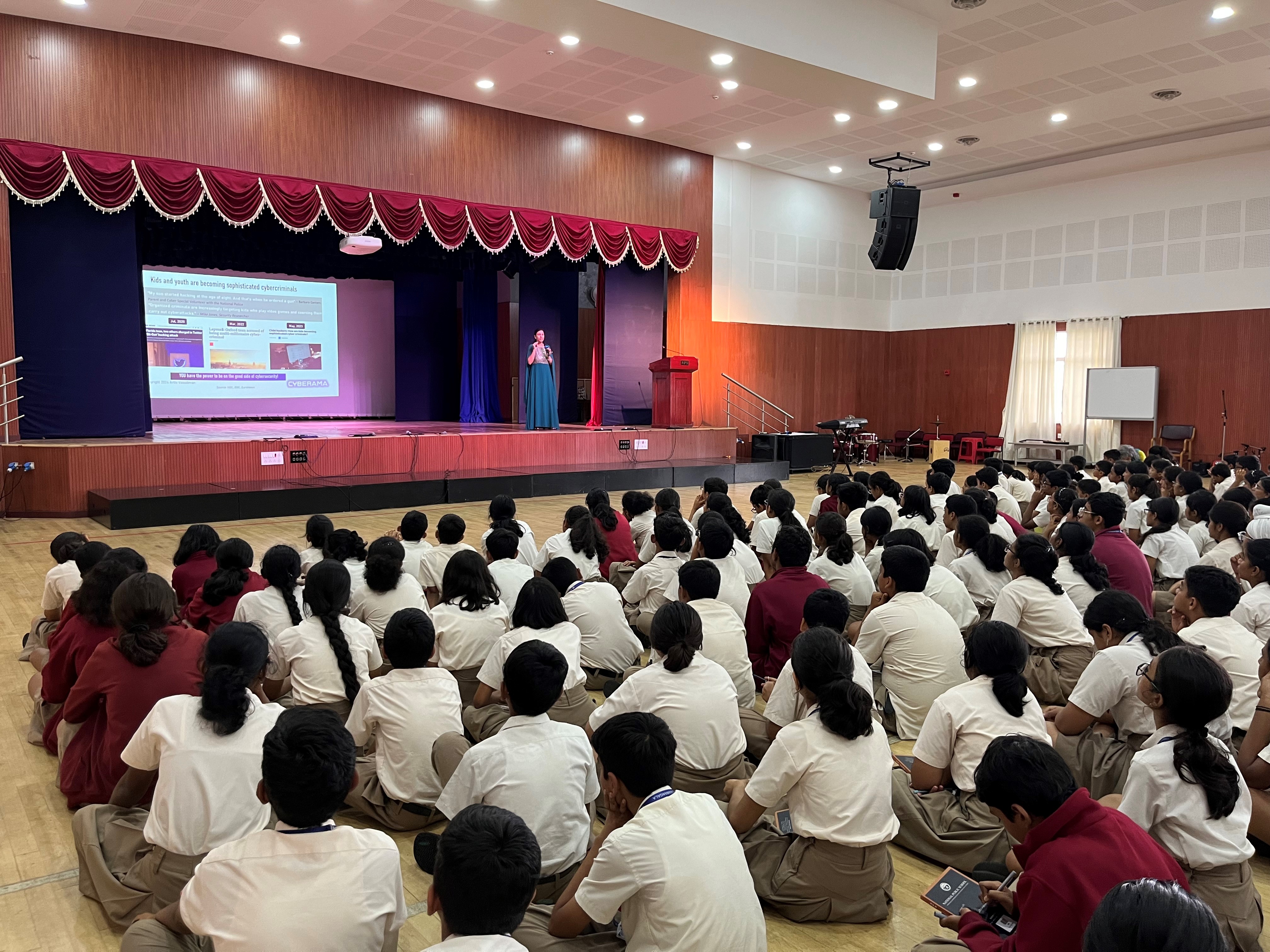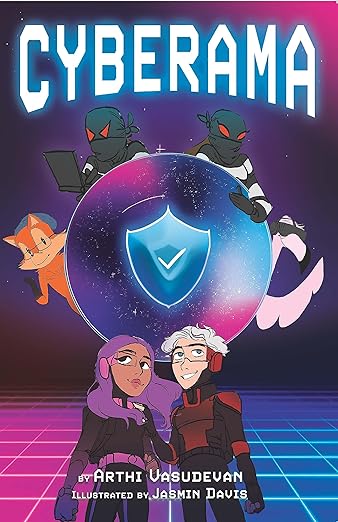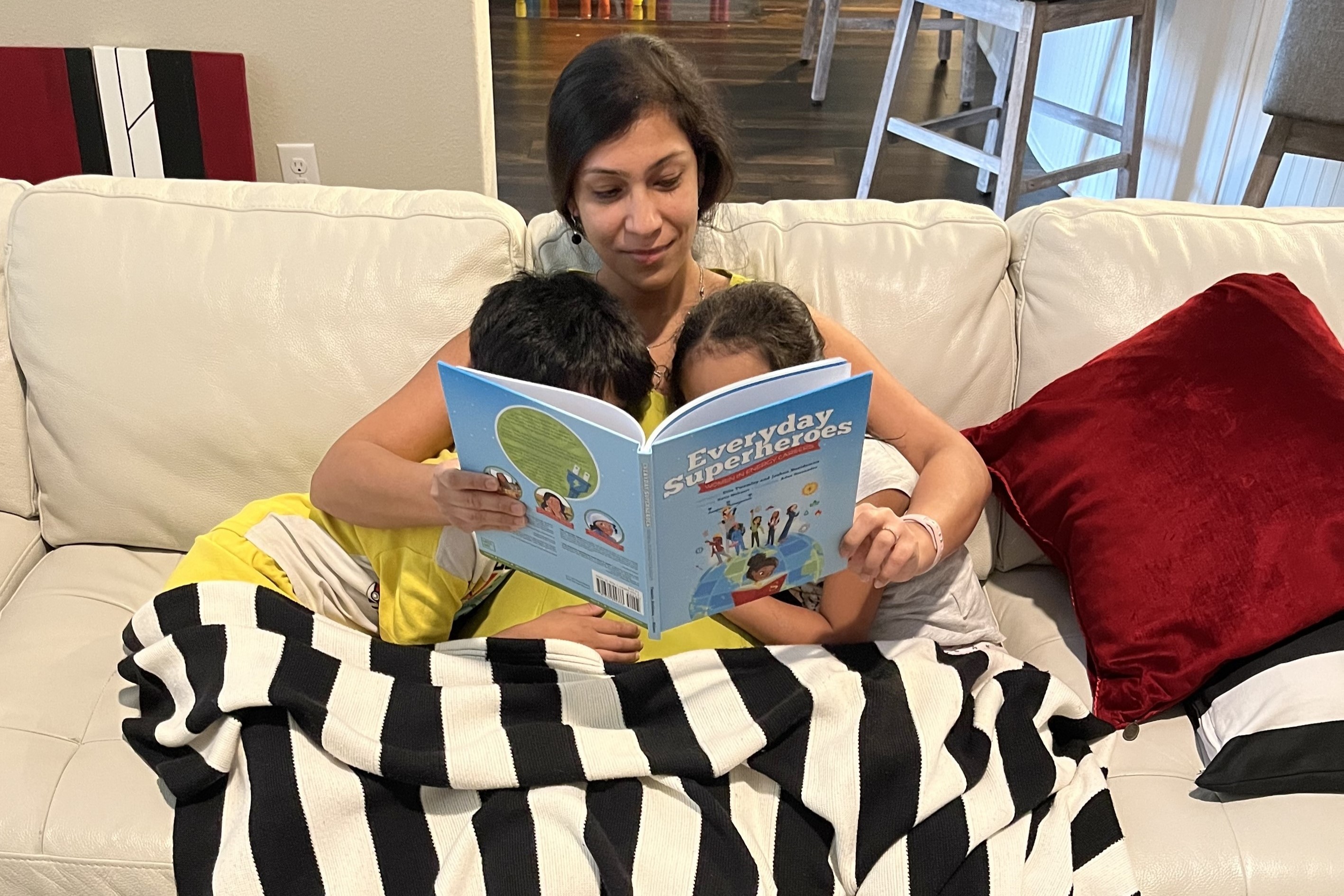In fall 2021, Arthi Vasudevan, product line leader for cybersecurity at Gas Power at GE Vernova, was working from home in Houston when there was a knock at her door. It was her seven-year-old son, sharing some exciting news. He’d just unlocked a new level on his video game, thanks to the help of a stranger online. Vasudevan hid her alarm. “The moment you start to preach, kids disconnect from you,” she says. “But inside, I was freaking out.”
Maternal instinct told her to protect her child, but the last thing she wanted to do was police his favorite pastime or ban it. Then she had a moment of clarity. Just like the utility companies that are GE Vernova’s customers, children would be much safer online if they knew about the risks. She began the very next morning at breakfast, talking her kids through the subject of unsolicited messages from online gamers and “stranger danger.” It wasn’t easy to explain the principles of cybersecurity to a kindergartner and a second grader, but Vasudevan had prepared a script in her head, “like I do with all my customers.” To her relief, she had rapt young listeners.
Encouraged by her success, Vasudevan leaned into the job. Just two years later, she was running workshops for children aged 7 to 13, where she explained cyber threats like social engineering, malware, and phishing, among others. It wasn’t long before she was striding the stage at STEAM (science, technology, engineering, arts, and mathematics) camps for girls mulling careers in engineering.

She didn’t stop there. Last year, Vasudevan published her first book, Cyberama: A Children's Book on Internet Safety and Cybersecurity. The comic-style caper features Maya, an Indian American seventh grader, who fights cybercriminals with the help of her best friend, Dave, both characters inspired by her kids, and six artificial intelligence (AI)–powered animal robot pals. The graphic novel, which is complemented by an interactive web-based game, activity kits, and lesson plans, made several Amazon bestsellers lists and now boasts five-star ratings galore. Vasudevan, who has reached 3,500 students, parents, and educators through her workshops and publications, is now planning her second book, based on the Ukraine power grid hack in 2015.

You might wonder how she finds time to be a multitasking cybersecurity guardian angel alongside her day job shoring up the world’s critical infrastructure against bad actors through GE Vernova’s end-to-end cybersecurity portfolio, not to mention her full-time mom duties and being an active speaker in industry conferences on OT (operational technology) cybersecurity. In her words, “Thanks to GE Vernova being supportive of my professional and community initiatives, I feel safe and inspired to bring my whole self to work. During the day, I help our customers to stay safe from cyberattacks, and after work I empower children and youth to self-protect online.”
Vasudevan, who has overcome challenges during her career as an immigrant and woman of color in STEM, hopes that her story will inspire others. She’s learned that there’s no shortcut to success, but it’s up to each person to find their path. “We all have ideas at the back of our minds, and it takes courage, perseverance, and resilience to transform that idea into reality,” she explains. Never underestimate the value of a positive mindset and taking that first step, she adds. She is also grateful for the support she receives from her family, especially her husband, who also has a demanding career in technology.
Bright Spark
Vasudevan is proud of her roots. She was born in Erode, a city in Tamil Nadu, India’s southernmost state, where her father ran a textile business and her mother worked at a bank. Growing up, she was a straight-A student, and a class president in her final year of high school.
As a higher schooler, Vasudevan adored physics. “Even if it was just a spark plug in the car, I was always curious about how power worked.” Inspired by her sister’s education in engineering, she received a bachelor’s degree in electrical and electronics engineering in Chennai, then moved to the United States, where she received her master’s in electrical engineering at the University of Kentucky.
Then followed some difficult years. During one of her first internships, at a mining company, a senior colleague referred to Vasudevan as “eye candy.” Never having heard the term, she looked it up, and almost dropped her phone in shock. “I felt totally objectified.” Vasudevan also remembers visiting mining and drilling sites where the women’s restroom was permanently closed. “No women ever went there,” she explains. “That was an eye-opener on gender inequality for females in the workplace. Since joining the company 11 years ago, I’m proud about the diverse yet inclusive culture our organization has been fostering.”
Speaking Up
Now she’s unapologetic about speaking up and offering her views, aiming to “be bold, and to be brief.” Her mantra is “What you think is what you eventually exude.” Vasudevan is also not shy to seek out help, such as the time she called the Employee Assistance Program (EAP) line when she felt overwhelmed during COVID while pursuing her part-time MBA at Rice University. She also encourages her mentees and others to ask for support in the career development workshops she conducts. “You should be in the driver’s seat of your career and clearly ask for what you want, instead of assuming things will be given, such as a promotion, resources for a project, etc.” She tries to keep stress at bay by setting clear expectations and boundaries in every area of her life.
That said, she’s grateful that her son trespassed into her office that one time, which provided the genesis for her book. Vasudevan approached the problem of writing like a true product manager. “I always like to connect with customers, understand their problems, and translate them into actionable requirements, so we can build a product that is commercially viable and satisfies their needs,” she says. “I went through the same process with my book.”
So she hit the streets to understand her target audience, asking groups of kids in her neighborhood for feedback on her early efforts. Vasudevan listened attentively, regularly updating her working draft. There were a couple of non-negotiables, such as the protagonist being an Indian American girl. “Representation was important,” she explains. “There are still not as many females in STEAM careers and cybersecurity, and I wanted to change that.”
The lead characters in her book learn through mistakes, such as forgetting to change their default password and accidentally disclosing their street address to an online game. In other words, says Vasudevan, they’re human and relatable. (A couple of the book’s tips: Always use anonymized usernames and unique passwords/pass phrases, and never click on any link without knowing where it leads.)
Vasudevan shares one fond memory of when a girl, who listened to her workshop on internet safety, hugged her to say that she’d been inspired to pursue a career as an ethical hacker. “That was a real goose-bumps moment.” She hopes her second book will alert readers to the importance of securing the critical infrastructure, and also appreciates what GE Vernova does to bring power to the remote parts of the world. “We take a lot of things that we need to survive for granted, such as power, telecommunications, food and water,” she says. “Just like I tell our customers, we cannot eliminate all risks, but we can certainly reduce them.”
Vasudevan is already thinking about tomorrow’s cybersecurity risks, including the threat of bad actors harnessing generative AI. “It’s way easier nowadays for someone to learn how to hack industrial control systems to cause havoc,” she says. Companies can keep abreast of such risks through constant upskilling and training, she believes.
The cybersecurity product manager urges others to “aim high, because the only thing limiting you from being a better version of yourself is you.”
